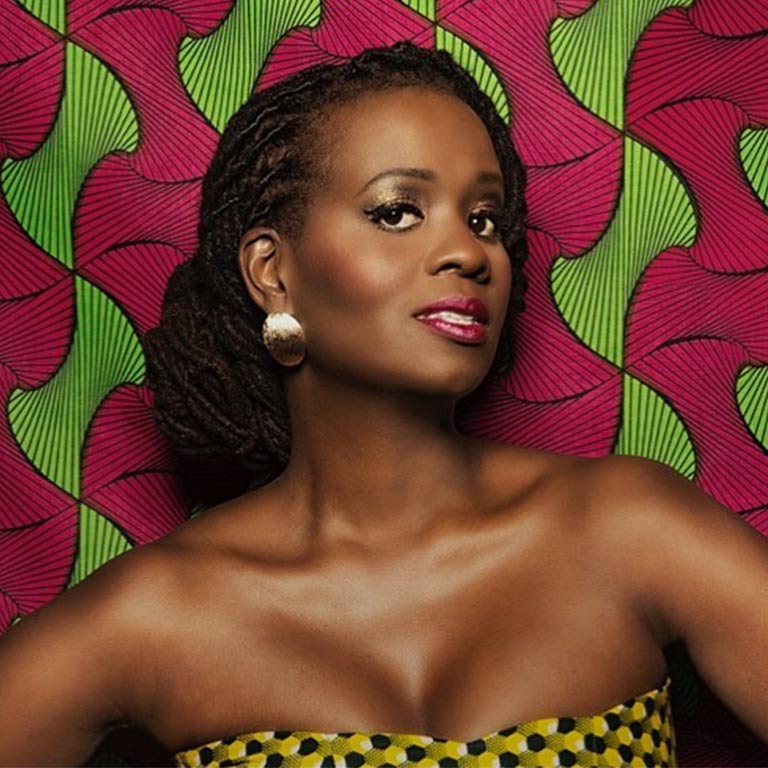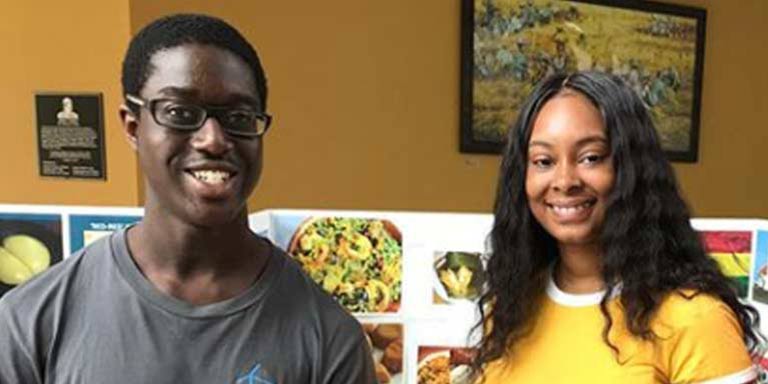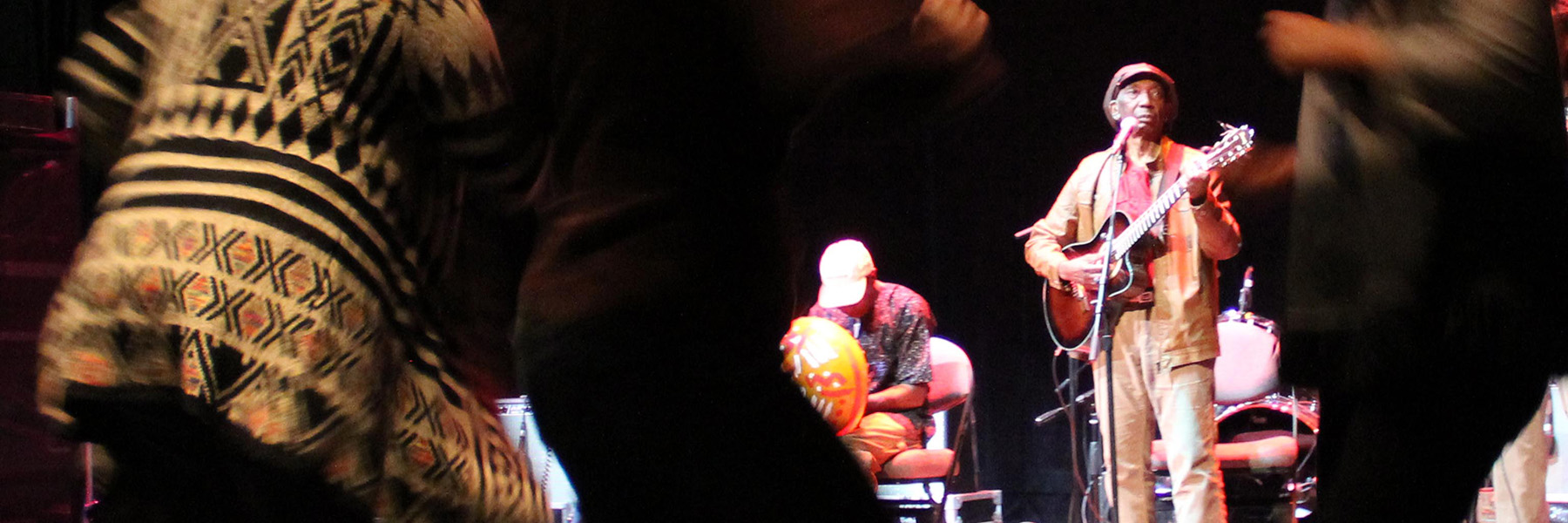Whether in the form of roundtables, lectures, film series, symposia, or workshops, African Studies’ programming brings together students, faculty, researchers, and practitioners from units within IU and the world beyond.
African Studies programming
ASP Colloquium Series
ASP Colloquium Series allows IU faculty, graduate students, and visiting scholars to present topics relating to Africa. This event happens in the fall and spring terms, with six to nine colloquiums per term.
ASP Pathways Series
The ASP Pathways series is focused on providing graduate and undergrad students career-focused mentoring, networking, and professionalization experiences. Events range from workshopping of various skills, bringing in guest speakers from a range of professions -including IU alumni, discussing internship opportunities, arranging sessions led by the Walter Center for Career Achievement, Peace Corp Prep, and more. We regularly seek feedback from student participants to make sure Pathways is relevant and timely, meeting student needs.
Contemporary Africa Seminar Speaker Series
The AFRI-A 731 seminars are offered on a different topic each spring semester. They are also our primary venue for presentations by national and international scholars. These guest lectures are open to the wider African studies community and the public.
African Languages Tea Time
Our language instructors and their students serve tea and snacks while introducing curious passersby to one of six African languages. These are scheduled for both the fall and spring semesters, on Thursdays in the GISB atrium. Dates for each language are announced at the beginning of every term.
African Languages Festival
African languages students perform songs, dances, and skits demonstrating what they have learned in their courses. Festivals are held during the fall and spring semesters and are open to the public with food and fun for all.
Special events
Each semester, we offer a rich calendar of events including film screenings, lectures, performances and more – all of which are free and open to the public. Please check our calendar regularly, as well as follow us on Instagram and Facebook to find out the latest events not to be missed!
Taste of Africa
In this presentation, you will get a taste of six of the seven African languages that are taught at Indiana University. These languages are Akan, Bamana, IsiZulu, Kinyarwanda, KiSwahili, and Yoruba. You will get information on what countries these languages are spoken from the west, east, and central Africa, and the number of speakers that speak each language. You will learn greetings and introductions in KiSwahili and IsiZulu, singing and dancing in Kinyarwanda and Bamana, drumming in Yoruba, and traditional clothing in Akan.
Description of the video:
welcome to the test of africainternational education week
you'll get a test of africa you'll learn
about greetings and introductions in
kiswahili and issy zulu
sinking and dancing in bamana in kenya
rwanda
drumming in yoruba and traditional
clothes in a khan
why study african languages they fulfill
language requirement they come towards
undergraduate african language minor
they count towards certificate in
african studies
you can do study abroad there are career
opportunities
and you can get fellowships in foreign
language area studies
where is a kind spoken in ghana and cote
d'ivoire
and there are over 10 million speakers
vamana over 15 million speakers
spoken in mali burkina faso guinea
conakry
northern cote d'ivoire mauritania gambia
and senegal
king rwanda over 9 million speakers
rwanda burundi democratic republic of
congo
and uganda israeli
over 150 million speakers 150 million
speakers
spoken in congo kenya uganda rwanda
burundi tanzania
and other places
europa over 40 million speakers
countries where europe is spoken sierra
leone ghana
bernie turgo nigeria and other
neighboring countries
this is zolo over 25 million speakers
spoken in south africa zimbabwe malawi
namibia
and mozambique enjoy the different
events
[Music]
bloomington
uh
[Music]
so
[Music]
hey
[Music]
[Applause]
and at this point
hello everyone so this is yoruba talking
drum so your battle kingdom is
one of the prominent musical instruments
in europe
so and um it is called
talking drum because europa people use
it to communicate with one another
so it's common among the kings so you
will see it in the palace
and most especially in festivals
events and all of that so dramas usually
to communicate with one another without
other people getting to understand what
they're saying
so it's very common and we have families
in the europa culture whose primary
occupation is this so this is what they
do for a living
they draw and once a child is born into
that family
the child gets to start practicing as
early as possible and started drumming
as early as possible and that is what
becomes the child's
profession so and um
to a music instrument i'm going to drum
it and basically what happens when people
drum is that the shoulder
is used to paint this part so when i
raise these
or if i lower it or i erase it that's
what
determines the tone or the voice of the
drum so if i put it down like this
so i'm going to draw and recite a poem
about love
love love so that's what i'm going to be
talking about
i can't traditional clothing focus
on kente and edinkra
of course there are so many
account clubs but
for the purposes of this presentation
i will focus on kente
and adinkra
as you can see here i am
i'm in one of the traditional clothes
but i'm not going to talk about that
i'm going to concentrate once again as i
said on kente
and adinkra
so the account people live in ghana
and ghana now has 16
regions yeah the flag
has three colors red
gold and green with a black straw
the middle of the gold
color
we have a kente weaver
doing his own thing
um so the kente
is hand woven into strips
small strips that are
sown into
the kente this is one of the streets
yeah so it is this that is sewn into
a kente like that
so when it's sewn we get
kente different kinds of kente
so you can sew
to the size you want it
yeah so depending on
the size yeah you you you just saw the
strips
put the strips together into the size
that you wanted okay
and with that
is incredible a plain cloth
onto which they are being crashed
symbols
are stamped
are incredibles are stamped onto
the um the playing club
yeah to derive daddy heading crack club
they're the crack club
usually maybe cotton um
and then the i didn't crash symbols we
have
several adding class symbols
yeah these are some these are some of
the symbols
yeah sankofa we have sankofa
and then jinyame
yeah so when the symbols are stamped
onto the cloth yeah we have something
like this
and here we have somebody
in and i didn't crack
cloth you can see the symbols here
we have very different symbols
that have been stamped onto the club
now um let's talk a little about um
the use of the club
can take love is used
by chiefs and kings
and then queen mothers
yeah here we have um the current
asante honey that is the paramount chief
of the asante people
they are scientists subgroup of the akan
people they are sitting in state
and he is in the kente
club
claw the difference between
um how the cloth is one
between how the cloth is one between
male and female see the male
has just one large glove
that is um
that is wrapped around the body
but the female one is
a two-piece type of cloth we have
one around the waist
from the waist down and then we have
a second piece i'm sorry we have a
second um
one arm around the shoulder
just like the men do so the only
difference is that
um the female or or the queen
the female will have two uh two piece
two pieces um
and then the male will have just one
large
cloth that is wrapped around the body
by precedence unless
actually it's used the kentucky cloth is
used on
special occasions for instance um
presidents can work they can take love
during inaugurations for instance um
when the king when the president is
being sworn
in yeah they can be
in the kent club
here we have a former president
his name is john kumkufor
yeah in kente club
this is also the current president of
ghana
yeah are they swearing in
ceremony yeah he was swearing the oath
of
office and he was in a kente
club
kente club can also be
presented as yeah could also be given to
[Music]
dignitaries
as president as gifts
here we have the kitty club
that was given to president
bill clinton when he visited ghana
and we have
the late nelson mandela president nelson mandela
who also visited the asante
and was presented with a kente club
some people um who can wear
kids can work into clubs
and in the same way adults can
do that but they'll usually be
on special occasions
on special occasions
[Music]
here is um
our granddaughter when he was celebrity
when she was celebrating her birthday
one of her birthdays
as a kid yeah we dressed there in
kente club
this is also our first
daughter
being married yeah this is
during the marriage ceremony
the traditional wedding
yeah she was in kente club
this is my queen
my wife in kentucky club
she reward this to church
yeah on a special occasion yeah
what is to church
and here we have chiefs
cain's chiefs and kings seated
and it was a special occasion
and we see them in kente club
here we see
some three women here in kentucky club
and they are happily dancing so i call
them the dancing
ambassadors
thank you so much for watching and my contact is d-a-d-u-a-m-a-n at indiana.edu
thank you again and god bless you all





